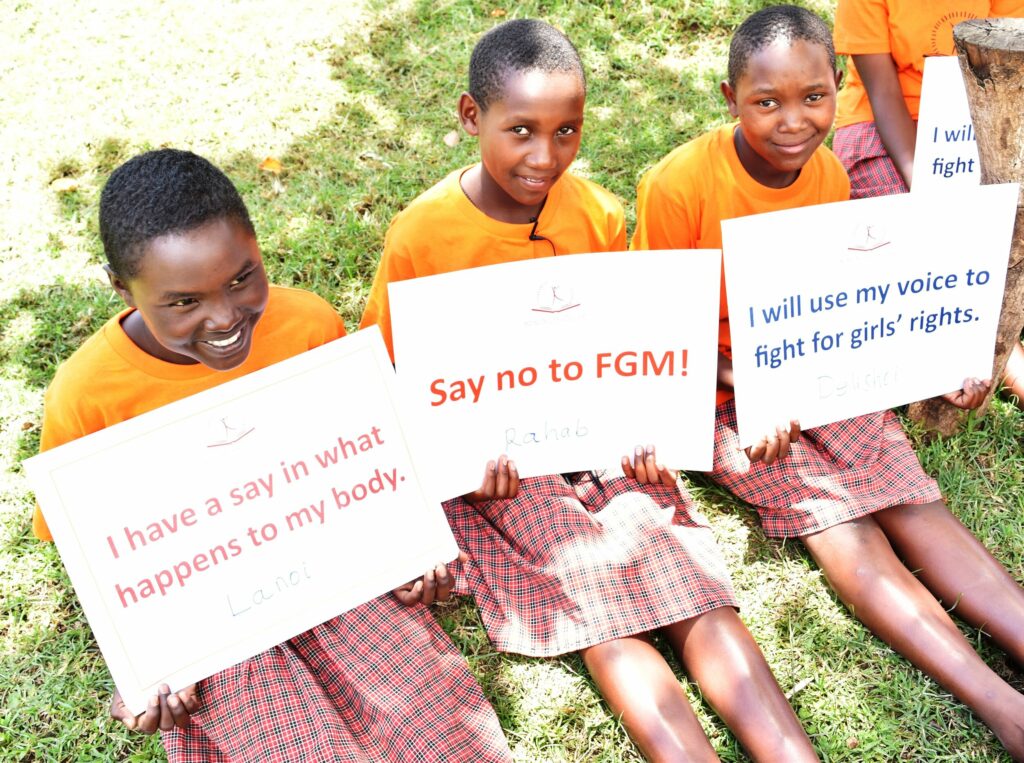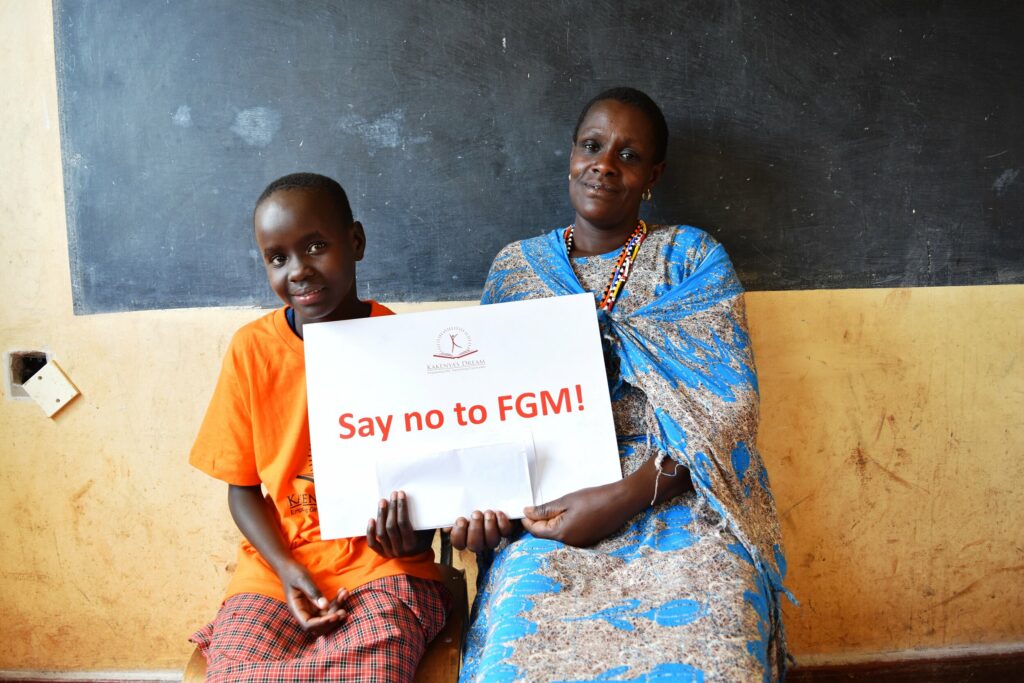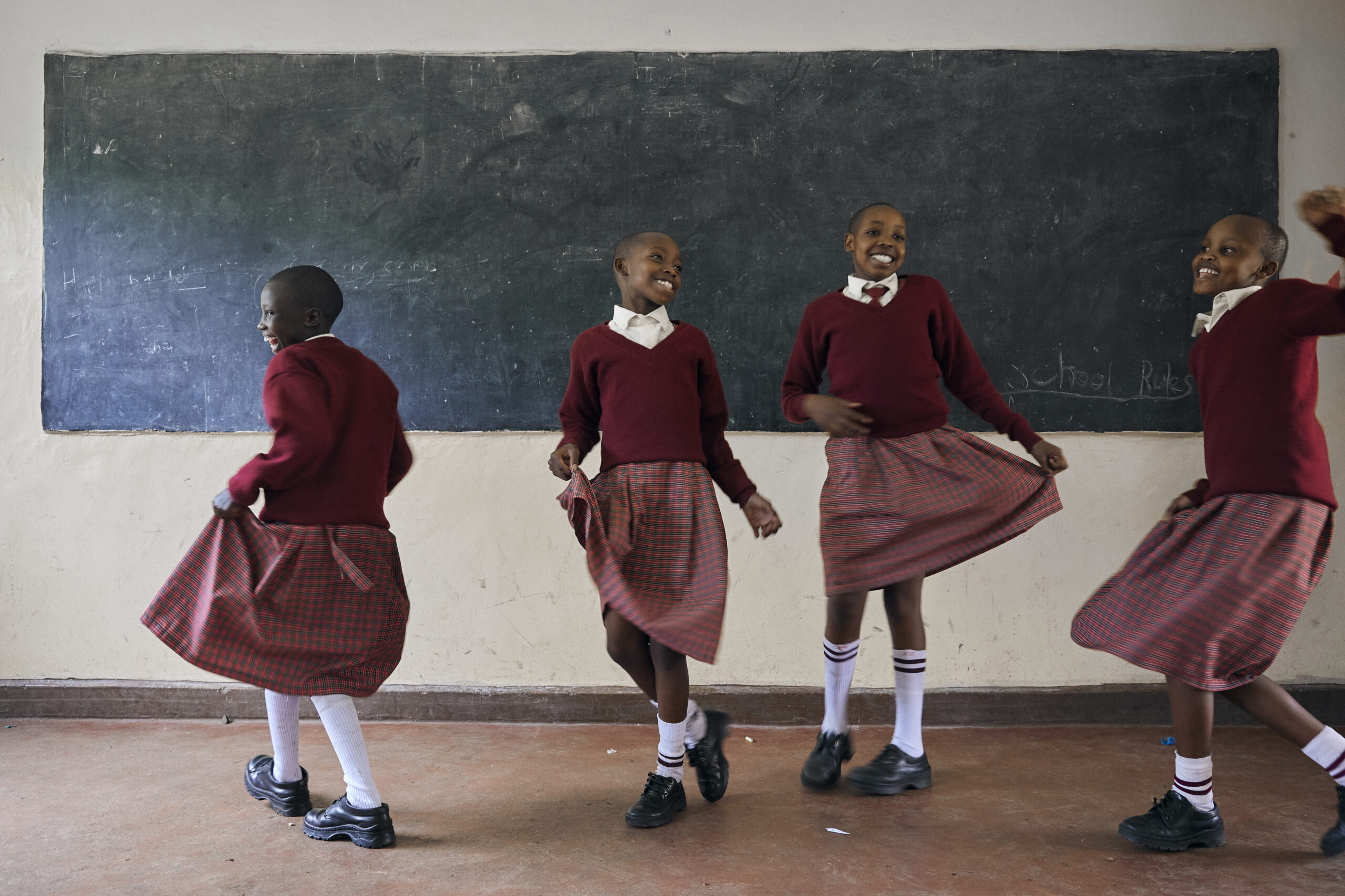As we commemorate International Day of Zero Tolerance for Female Genital Mutilation (FGM) amidst a global pandemic, we are reminded that now more than ever, our mission at Kakenya’s Dream to empower girls and end harmful traditional practices like FGM is vital.

With the onset of the COVID-19 pandemic, this past year was particularly detrimental to both global and national progress towards eradicating FGM. According to UNFPA, as a result of pandemic-related disruptions, it is estimated that there will be a 33% reduction in the progress towards ending FGM by 2030, and two million more women and girls will undergo FGM that otherwise would not have.
There are many factors that have aggravated the prevalence of FGM recently. School closures in particular have played a major part in this. Our Founder and President Dr. Kakenya Ntaiya explains, “I believe that the pandemic is causing an increase in FGM in Kenya as girls have been isolated from their support systems and they lack reporting channels that are critical for them. Schools were the safety net for girls.” Bernadette Loloju, CEO of the Anti-FGM Board of the Kenyan government echoed these sentiments in a recent interview: “During the corona period, we realized that school is one of the safest places for girls. The fact that the schools have reopened, it’s like a way out for us.”
But when schools in Kenya closed for nearly 10 months in an effort to slow the spread of COVID-19, it heightened girls’ risk of undergoing FGM. Lockdown regulations meant that other protective spaces such as women’s shelters and safe houses were also required to close. Local reports from across East Africa as well as other parts of the world have shown that some communities have taken advantage of girls being home and the decreased surveillance and law enforcement presence during lockdowns to perform FGM ceremonies in secret.
Economic hardship has also played a role in rising cases in Kenya. According to the World Bank’s 2020 Kenya Economic Update, Kenya’s unemployment rate doubled to 10.4% and the average income was projected to decline by 3.3%. The report showed that women and youth were hit especially hard. According to the Orchid Project, in some parts of the country, people who had formerly abandoned practicing FGM have now started again. Ebony Riddell Bamber, head of policy and advocacy at the Orchid Project, explained via NPR, “it was a way that they saw that they could obtain income at this difficult time.” Loss of income is also pushing more families to marry off their daughters in exchange for money, livestock, or food/supplies, also known as “bride prices.” Tragically, UNFPA has estimated that there is expected to be an additional 13 million child marriages that will occur between 2020-2030 that would have been avoided if not for the pandemic. And because FGM is commonly performed as a precursor for marriage and signifies a girl’s transition into womanhood, higher rates of child marriage often mean higher rates of FGM as well.
Diversion of funding from sexual and reproductive health services in order to address the pandemic means programs that combat FGM and other forms of gender-based violence have taken a backseat. Although some safe houses and women’s shelters and clinics in Kenya have been able to stay open, many of these centers cannot admit new cases – both because of increased demand for services and limited funding.
So where do we go from here? Dr. Ntaiya explains, “There is a lot to be done during and after the pandemic to protect women and girls from this harmful practice. We need to keep investing in local, on-the-ground efforts to continue the advocacy work. Governments should not hide behind the numbers in communities with low FGM prevalence rates, but instead focus on making an impact, especially in the communities with the highest prevalence rates. In Kenya, for example, the national rate is 21%, but in some communities, it is as high as 90%. We must change that.”

As we continue to create and implement COVID-19 response plans to meet new and changing needs for the duration of the pandemic, we need to ensure there is a gender lens on every plan and program in place. We also need to abandon the mindset that at some point we will “return to normal.” Normal in our community, pre-pandemic, meant nearly 80% of girls undergoing FGM. Normal wasn’t working. What we truly need is a reset that not only effectively addresses the problems that were present before COVID-19, but that also addresses the new challenges brought to light by the pandemic. We need to deliver proven, multisectoral, rights-based interventions to address the vulnerabilities that women and girls face.
While the effort to combat FGM in Kenya has faced many challenges this past year, we are doing everything we can to overcome these obstacles at Kakenya’s Dream. After our Center for Excellence (KCE) boarding schools closed last March, we launched the Angaza Project, an emergency response program to meet our students’ most pressing needs while they were out of our care. Through the Angaza Project, we conducted frequent wellness checks and delivered monthly care packages with necessities our girls lacked at home, including hygiene supplies and food for them and their families as well as academic materials. We also fast-tracked our plans to open our community’s first and only youth-friendly health clinic, securing funding from the #StartSmall Foundation to begin building it this year. Once open, our health clinic will include sexual and reproductive health services and information that we hope will make a meaningful difference in our community.
While our Centers for Excellence (KCE I and II) have now opened back up and our team is working hard to meet the needs of our students and community, the impacts of COVID-19 have been immense. If you would like to support Kakenya’s Dream and the vital services that we offer our community in honor of International Day of Zero Tolerance for FGM, please donate below.


